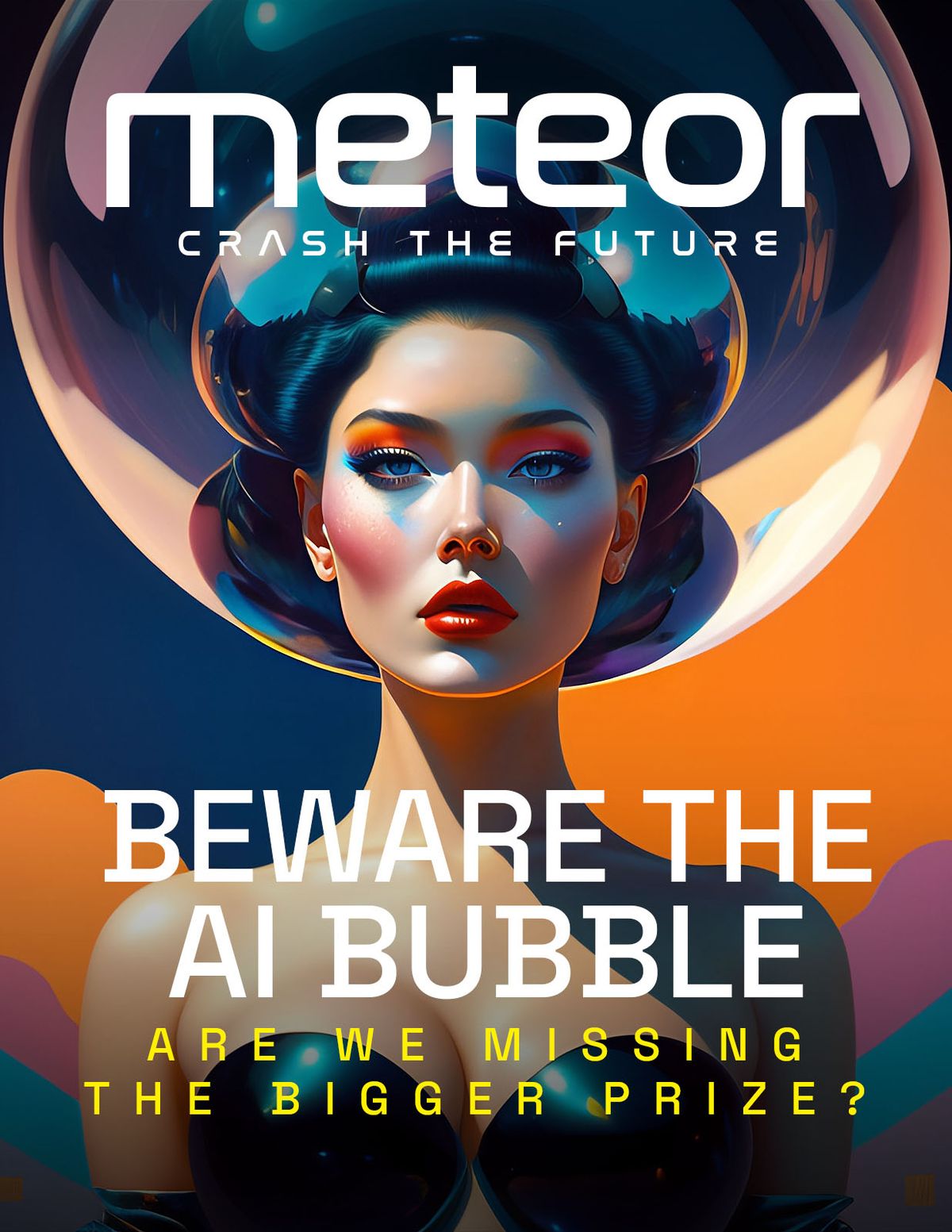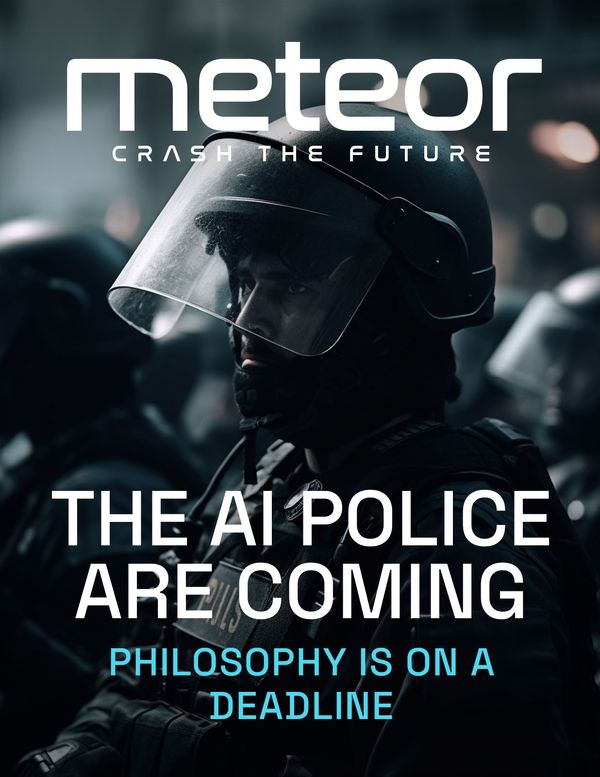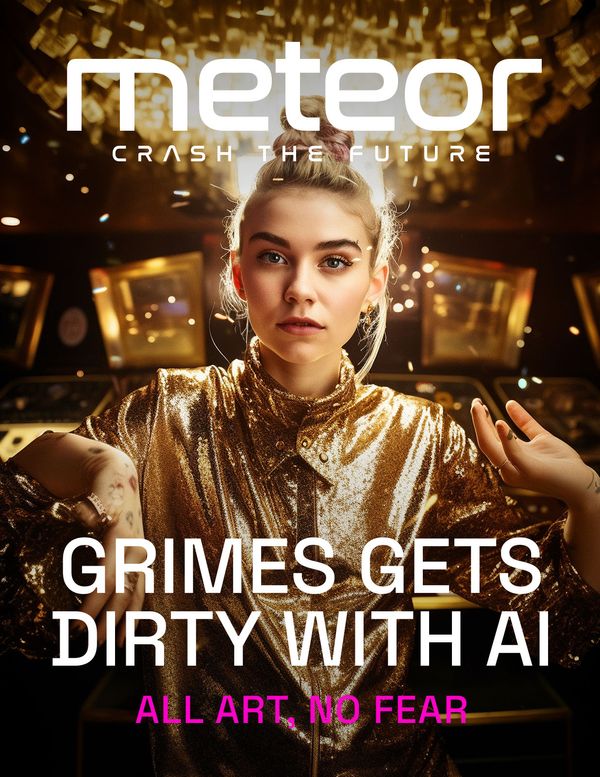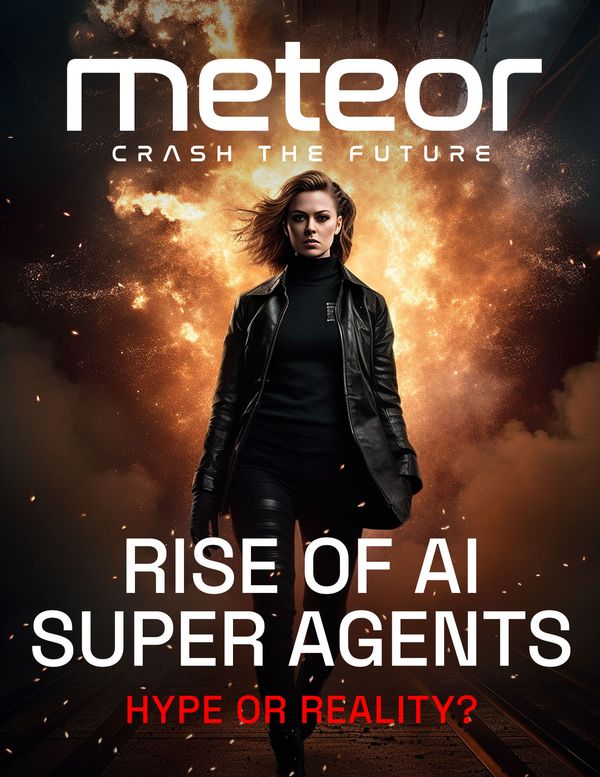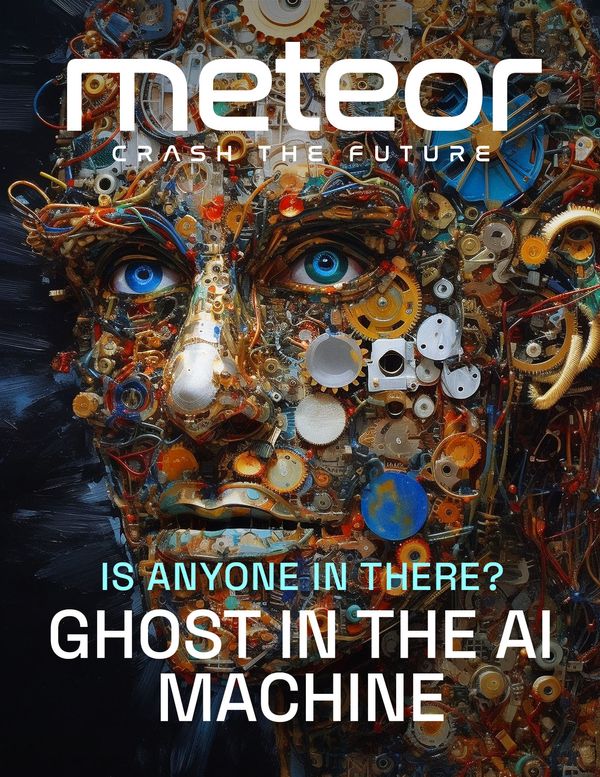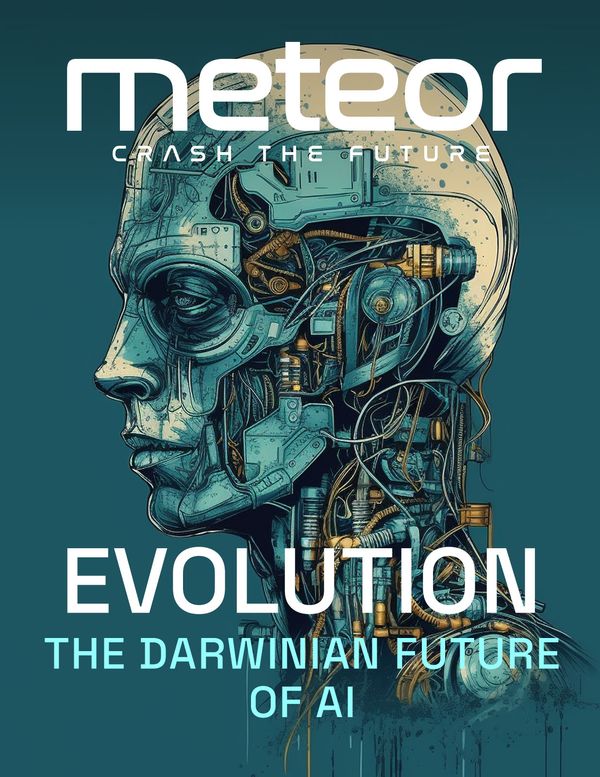Today in Meteor
- Create: The Classical, Painterly Style of Ren AI
- Disrupt: Is the AI Hype Machine Missing the Real Prize?
- Compile: Google's AI Chat Bot is Coming
- Beyond: Search for Alien Life Gets Closer to Home
Create
The new renaissance

Artist Spotlight: The Classical, Painterly Style of Ren AI
Northern Italy, home to Florence and Venice, is the birthplace of some of the most iconic art ever made. Its influences are everywhere in Ren's work.
A native of the region whose family's connections reach back 200 years, Ren creates in a style that channels his training as a classic Italian painter. His digital work, rendered with the assistance of a custom tuned version of the generative AI imaging tool Stable Diffusion, often results in images that look like they could hang comfortably next to the Old Masters in a museum collection.
"The most difficult part for me is composition," he says. "You can’t really tell the AI, 'Put the subject here but the secondary focus on the opposite angle.' So what I usually do is a really large batch of images. Then I compose the outputs in a new image on Photoshop with a little in-painting to fix some areas. Then I feed it back to the AI for an image to image pass so there is no odd juxtaposition off of the image I started from.

"Then there is still post processing in Photoshop to work on contrast, darks and lights. I try to get exactly what I’m aiming for. It’s impossible with AI, but I try to get close."
Like many Web3 creators, Ren prefers to keep his real identity a secret. "I try to protect it," he says, highlighting the stigma that often follows traditional artists who make the switch to digital and AI. "Many people are actually harassing painters online if they show online they are using AI or selling NFTs."
It's a decision he doesn't regret.

Moving to NFTs, he says, is a "paradigm shift" for artists giving them greater control over how and when they create, and how they can earn a living from their art alone, something he says he aspires to do.
"My plan for this year is to create something like The Course of Empire artworks, [American 19th century painter] Thomas Cole’s greatest work. I want to make something in this range of epic-ness."
You can find more of Ren's work on his website or Twitter.
– Evan Hansen
Disrupt
Big ideas that change the world

Of AI Bubbles and Off-ramps
tl:dr
- Everyone is astounded by the recent surge in generative AI
- But some worry chat bots and cool pictures are a distraction to the bigger dream of sentient machines
- With billions to be made now, it's hard to keep our eyes on the distant prize
Investors are forever chasing the next big thing, and the signals that AI is it seem to be everywhere, but there’s also reason to think that the things reaping rewards right now aren’t actually the biggest thing. Not even close.
It’s a bit like, well… The Thing. No, not the sci-fi flick, the road-side attraction outside Tucson, Arizona that’s the subject of a huge billboard hype campaign all across the American southwest. If you’ve ever driven any stretch of Interstate 10 between Palm Springs and El Paso, it’s pretty much impossible to miss the signs advertising it. There are at least 247 of them.

And if you give in to the hype (rather than looking it up on Wikipedia like a reasonable person), you’ll pay five bucks at a rest stop in the desert to see a small museum exhibit highlighted by a weird mummy-like… thing.
Spending time seeing The Thing distracts from the gorgeous rock formations that surround the rest stop and from visiting the breathtaking Sonoran desert that begins just a little further down the highway and is home to arguably the best small city and university town in America in Tucson.
To the people that are most deeply enmeshed in developing strong AI, Large Language Models and products like Chat-GPT are just like The Thing, a distraction on the side of the highway postponing reaching the real destination.
Or as Meta’s Chief AI Scientist Yann LeCun put it recently: “On the highway towards Human-Level AI, Large Language Model is an off-ramp.”
LeCun is more interested in an architecture that can reason and plan rather than just react and try to predict what word has the highest probability of coming next in a sentence as many LLMs essentially do.
On the highway towards Human-Level AI, Large Language Model is an off-ramp.
— Yann LeCun (@ylecun) February 4, 2023
It’s a sentiment and a metaphor echoed by tech polymath John Carmack, who is working on his own independent approach to achieving so-called artificial general intelligence (AGI).
AGI is one of the Holy Grails in tech, right up there with fusion and warp drives. The basic idea is to create a system that can think and reason like a human, preferably one that doesn’t spend a lot of time on Twitter.
To Carmack and others, LLMs are less a milestone on the road to AGI than they are a wrong turn.
“It’s a worry that if you just take the first off-ramp and say, ‘Hey, there’s a billion-dollar off-ramp right here’—where we know we can just go take what we understand and revolutionize various industries. That becomes a very tempting thing to do, but it distracts everyone from looking further ahead and focusing on the big far distance stuff.”
Carmack’s AI startup Keen Technologies has raised $20 million that the former game, rocket and Oculus developer hopes to spend slowly over the next several years working out some key problems to cracking AGI.
“I’m in a position where I can be really blunt about what I’m doing, and that is: zero near-term business opportunities.”
Few working in AI right now are willing or able to strike out on their own and play the long game like Carmack. He says he was courted by OpenAI CEO Sam Altman to join the company, but opted to stay independent, citing what he called “a lot of groupthink” in the industry, stemming from the similar backgrounds of researchers and engineers and competitive market pressures taking hold.
Fear of missing the ride on the way up is also what bloats the bubble, making it more frail and prone to pop. What’s worse is, in this case, those trapped in the bubble have actually missed the ride to the real destination, be it Utopia or Skynet.
Short term attempts to commercialize AI are dominating the headlines, with practical new tools coming every day to make you work and leisure more productive and enjoyable, as well as driving sketchy product and marketing choices, all of which lead far from the path towards a super intelligent machine.
Go no further than the recent Consumer Electronics Show in Las Vegas, a consistently reliable perch for spotting the biggest bets, trends and boondoggles in tech.

According to Axios, 579 exhibitors were categorized under artificial intelligence this year, far outpacing the all-too recently hyped Metaverse and crypto spaces combined, and AI engineers were seen bolting their wares onto everyday products with abandon. Sharing the space on the showroom floor with Samsung's "Bespoke AI Oven" (using an internal camera and “the first food recognition and burn detection AI algorithm of its kind") was the Bird Buddy, an AI-enabled bird feeder, and dozens of similar efforts.
A graph of Google Trends search data from the past two decades looks exactly like the dramatic acceleration of global warming over the past century -- a hockey stick. But in the case of AI, we start to see a small uptick about 18 months ago before the graph goes vertical in November, after OpenAI's ChatGPT launched.

You can also follow the money down the AI rabbit hole, where you’ll find a speakeasy filled with investors drunk on Large Language Model (LLM)-based libations.
The most glaring illustration is the valuation of the for-profit arm of OpenAI, which has reached nearly $30 billion, despite revenues of less than $50 million, according to one estimate. No matter the real numbers, that’s quite a figure for an organization that was originally founded as a non-profit and just launched an early version of its first consumer product a few months ago.
But unlike a smart bird feeder, OpenAI can at least point to real utility and value. By some measures ChatGPT is the fastest growing platform in tech history, amassing 100 million users in two months. This eclipses not only the adoption rate for world-changers like Instagram, but also for the Covid-19 vaccine during a deadly pandemic (at least using US data).
Still, is OpenAI really already more valuable than eBay ($27 billion market cap) or on par with Kroger ($31 billion)?
A more ostentatious bit of evidence that LLM hype is inflating an increasing AI bubble lies in the much-discussed case of Buzzfeed. The media stock popped over 200 per cent after announcing it would use AI tech to generate some of its content.
For the record, here’s what Chat GPT said when asked if there is an artificial intelligence bubble today:
“No, there is no AI bubble as of 2023. However, there have been concerns about over-investment and over-hype in the AI industry in recent years, leading to a cautionary approach by some investors and analysts. Nevertheless, the field of AI continues to make significant progress and is expected to have a major impact on various industries in the coming years.”
It’s important to note that OpenAI discloses that ChatGPT has minimal knowledge of world events after 2021, so this is definitely not investment advice despite the model’s definitive response about current market conditions.
Thanks anyway ChatGPT, for the welcomed pit stop along the way, we really had to take a rest break anyway.
- Eric Mack
Compile
Quick dopamine hits
A Glitch on Twitch
Video Streamer Bans Parody AI-Generated Seinfeld Show Over Transgender Comment
The AI Chat War is On
Bard, Google's GPT rival reportedly weeks away
Keeping It Real
Meet Point-E, OpenAI's New 3D Model Generator
Bing's AI Bot Revealed
Microsoft's ChatGPT integration will reshape how we explore the Internet
What Is Poe?
Quroa Launched New AI Instant Answers Bot
Let 1,000 Pixel Flowers Bloom
The Generative AI Revolution In Games
Beyond
Web3 isn't eveything


Thanks for reading! Please take just 30 seconds to tell us what you love or hate about this issue.

